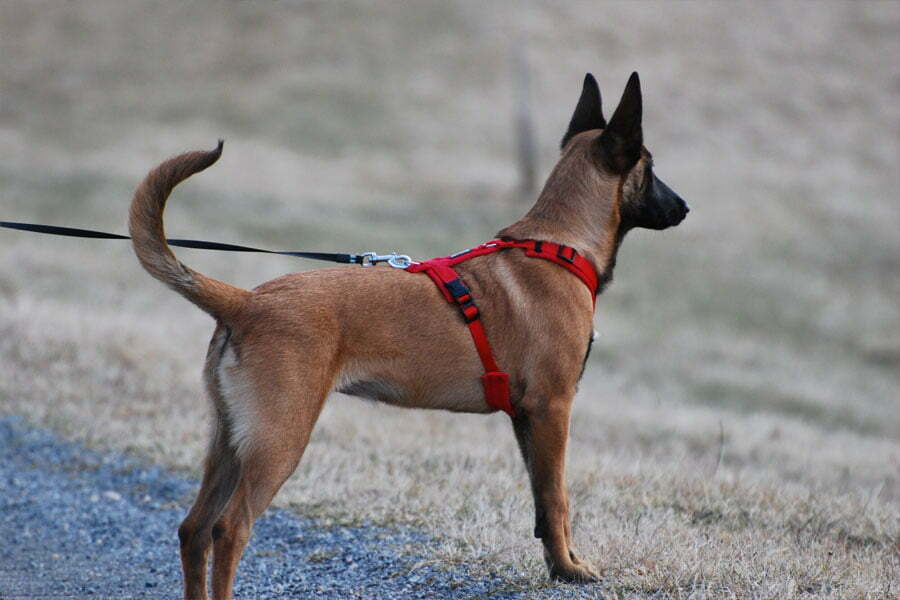What causes leash reactivity in dogs?
Situations affect dogs differently. Leash reactivity occurs when they bark, snarl, or jump at an object or person.
An aggressive dog usually does this. They’re typically docile. However, individuals revert to previous routines when they dislike something.
If your dog is on a leash, you’ll feel a tug and try to stop it. Naturally, this can worsen things.
Dominant and aggressive dogs react like this. Aggressive dogs aren’t always prevalent. Some are terrified and acting aggressively to fit in.
Dog leash reactivity has many causes. Read about them.
Lack of Socialization
One of the primary causes of leash reactivity in dogs is a lack of socialization. When dogs lack the proper socialization opportunities and the experiences needed to learn how to interact with humans and other dogs, their awareness of the world around them becomes limited, and they cannot process different situations correctly.
Dogs may then feel unsure and threatened by unfamiliar sights and sounds, causing them to react with aggression or other displays of fear. Socializing dogs early on, including exposure to various stimuli, can help them become better socialized, recognize other dogs, and feel more comfortable encountering new people.
Negative Experiences
Leash reactivity is a problem that many dogs have, and bad situations often bring it on. For instance, a dog might be afraid of bicycles, people, or other dogs and act scared when tied to someone. This could be because the dog has had bad experiences, like being attacked or yelled at by a cyclist while tied down or confined.
It could also be because they didn’t learn how to get along with people, other animals, and new settings when they were young. If a puppy isn’t exposed to a wide range of neutral or positive emotions and experiences, it might not be able to handle things that might be scary or stressful when it’s on a leash.
Protective Instincts
A dog on a leash also can’t use its instincts to keep the peace. This makes the dog respond when it feels threatened. If they can’t run away when seeing another dog or person, they may feel pushed to act aggressively as a “warning” to the other animal or person.
Their natural urge to protect can make them feel and act strongly, like barking, lunging, or growling. Owners need to know when their dogs feel scared or uneasy so they can handle the situation correctly.
Lack of Training
A lack of dog training often causes leash reactivity, as dogs like the pocket bully may learn to act too strongly when they meet other animals or are in new situations. Lack of socialization can also be a cause since dogs who don’t get enough time with other animals may learn to guard their area too much. To deal with and avoid leash reactivity, pet owners should focus on training and socializing their dogs consistently and positively.
Must Know About Leash Reactivity in Dogs
Various issues, including fear, insecurity, and environmental context, can cause leash reactivity in dogs. Even the most well-loved and well-cared-for dogs can be affected by leash reactivity, so understanding the underlying causes and committing to working through them is key.
If you or your dog are experiencing leash reactivity, it’s time to take action. Reach out to a certified canine behavior specialist for helpful advice and guidance.
If you enjoyed this article and want to learn more about health, fitness, and much more, check out the rest of our blog.
















